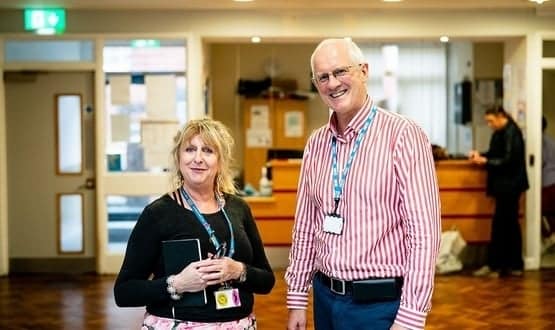Connecting Care now has more partners contributing and viewing data in its medical interoperability gateway (MIG) than any other UK interoperability programme, the partnership has said.
In May 2019 there were 37,500 user views in the MIG, which gives 6,000 healthcare professionals in the region access to primary care and community health records, end of life care plans, clinical letters and correspondence.
This means GPs and social workers can see clinical letters and correspondence including hospital discharge summaries, while hospital doctors and consultants can check GP medical histories when caring for new patients.
Health and care staff can see patient demographics, medications, diagnoses, prescriptions, warnings and alerts in ‘summary views’ that help speed up decision-making and prevent unnecessary hospital admissions.
Fran Draper, senior project manager for the Connecting Care programme, said pre-operative patient assessments had dropped from 2.5 hours per person to less than a minute as a result.
She also claimed that that Bristol City Council’s safeguarding team, which is responsible for protecting vulnerable adults, spent 15% less time dealing with telephone calls from health colleagues regarding concerns about their patients.
“Our colleagues in health and the councils now release time to care because they don’t have to search around for information anymore,” said Draper.
“It also helps reduce hospital admissions if clinical staff can see that there is alternative care in place and unnecessary home visits if staff can see that someone has already been admitted.”
‘Bedrock of Connecting Care’
The Connecting Care Partnership is a shared care record spanning Bristol, North Somerset and South Gloucestershire that supports 24 health and care organisations.
This includes 85 GP practices, three community providers, three acute hospitals, a mental health trust and three councils.
The MIG, provided by Healthcare Gateway, supports the shared care record’s use of national interoperability standards.
“The GP and community care data that the MIG supplies is the bedrock of Connecting Care,” said Draper.
Out-of-hours GPs were one of the first groups to benefit when Connecting Care went live in 2013.
Before, patient information could only be taken over the phone, meaning health and care professionals weren’t able to view any pre-existing information on past prescribing, recent GP visits or test results, or see if a care plan for a vulnerable person was in place.
Mike Taylor, lead GP at the Homeless Health Service, explained that this meant that emergency crews would have to get involved if a patient couldn’t be reached by telephone.
“We had no idea about past prescribing, recent GP visits, safeguarding, no documents, no results, nothing,” he said.
“During out of hours care in the past, if we couldn’t get through to a patient on the phone, we had to ask the police or fire brigade to knock the door down and make sure patients hadn’t collapsed.
“Now we can see if they were admitted to hospital and can contact the consultant or GP.”
Connecting Care is also using FHIR APIs to pull information from Bristol City Council’s substance abuse management system, to display information on controlled drug and opioid substitution therapies to relevant care teams.
This helps avoid substance misuse by preventing duplicate prescribing of opiate substitutes, which in turn reduces costs in medicines prescribing.
Journey to open standards
The use of FHIR messaging forms a key part of the Connecting Care project’s journey towards open standards.
Jocelyn Palmer, lead on Bristol Connected Care, has led the development of an interactive map of the evolution of the shared care record initiative in Bristol since 2014, which shows how the project has progressed.
Zehra Tahtakilic, a recovery support worker at Bristol Specialist Drug & Alcohol Service, said: “Along with allergies, mental health issues and other health conditions, we can see which medication their GP has prescribed which is really effective in avoiding duplicate prescribing,”
“Before, we would be calling the GPs right, left and centre so it’s definitely saved us a lot of time. We help people who haven’t got a GP so MIG data is very useful to find out if they are already registered or not.”


17 September 2019 @ 13:00
Ahem, we had 120,000 MIG views last month in The Great North Care Record project. We were inspired by Andy Kinnear and the gang however……….
20 September 2019 @ 23:16
Joe,
How DARE you allow the truth to get in the way of a good story? The last time I looked, LPRES was linked up to over 300 general practices, so you’d expect more views than from the 80 in the article above.
Cheers
Dave
16 September 2019 @ 08:22
Very impressed that when Mum was conveyed from M-Shed to Southmeads Hospital after a nasty fall last month, the SWAS crew were able to look up some of her records (in-transit according to Mum), as she does like things to be organised…
Thank you 🙂
Kent STP/SECAMB: “hold my beer”